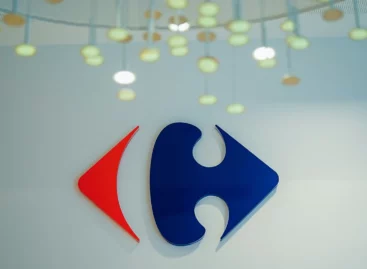Magazine: Supermarkets can use private label products as a weapon
The Private Labels Manufacturers Association (PLMA) has a monthly news programme at PLMALive.eu, called Newsdesk, and our magazine now presents to you the highlights of the October edition.
In the United Kingdom the market share of discount supermarkets increased further. Lidl’s sales were up 8 percent and Aldi’s sales performance was 6 percent better in the last quarter than in the one before. The rumour in France is that the two biggest retailers, Carrefour and Casino are thinking about a merger. Carrefour denied this information and Casino didn’t make any comment. In Spain the market of private label products increased by 4.6 percent in value. Tesco’s CEO announced that from next year they will focus more on fighting overpackaging, even by delisting products if necessary.
In Ireland supermarkets are using private label products as a weapon in the fight against discounter. Currently these products have a nearly 50 percent share in the market. Market leader Dunnes is at 22 percent, Tesco and SuperValue have 21 percent each, Aldi and Lidl both have a 12-percent share. Dunnes and SuperValu decided not to enter the price battle that discount supermarkets had started. Instead they replaced their private label products with even better ones and increased the level of service offered to customers. Dunnes already realises one third of its total sales by private label products. SuperValu rolled out its premium healthy product portfolio Signature Tastes, which is very popular and already makes up for almost 40 percent of the chain’s total sales.
Wine is one of the most important product categories for supermarket customers. On average shoppers spend up to 10 minutes with deciding what to buy. There are so many different wines available that some shoppers find it difficult to choose. Private label wine selections can be of great help to them, as through these the retailer recommends them something, narrowing down the choice.
The New Retail concept originates from Jack Ma, who coined the term back in 2016 as the CEO of Alibaba. Mr Ma is of the opinion that physical stores represent great value, because shoppers can see and find products and services in these. If combined smartly with the speed and comfort of online shopping, plus the advantages created by modern technology, a winning concept can be created. Jack Ma thinks that New Retail picks the best elements of both the online and the offline world.
This is the reason why Alibaba opened more than 150 brick-and-mortar stores under the name Freshippo or Hema. In these hypermarkets a large selection of fresh products are waiting for customers. These shops also utilise other technological solutions such as facial recognition software, artificial intelligence, virtual reality, holograms, etc. What is so new about the concept? New Retail’s source is the online world – and not physical stores going online – and geographically China, where there is great online-focused urban population. //
Related news
Lidl launches campaign with tennis star Steffi Graf
🎧 Hallgasd a cikket: Lejátszás Szünet Folytatás Leállítás Nyelv: Auto…
Read more >Related news
II. Green Gastronomy – Marketing Communication Workshop organized by the MMSZ HoReCa and Green Section
🎧 Hallgasd a cikket: Lejátszás Szünet Folytatás Leállítás Nyelv: Auto…
Read more >Nearly 140 domestic suppliers, 60% growth – SPAR Regions Treasures program accelerates with AI solutions
🎧 Hallgasd a cikket: Lejátszás Szünet Folytatás Leállítás Nyelv: Auto…
Read more >







